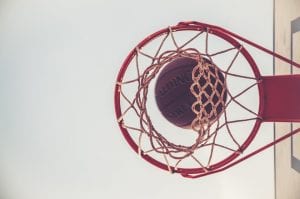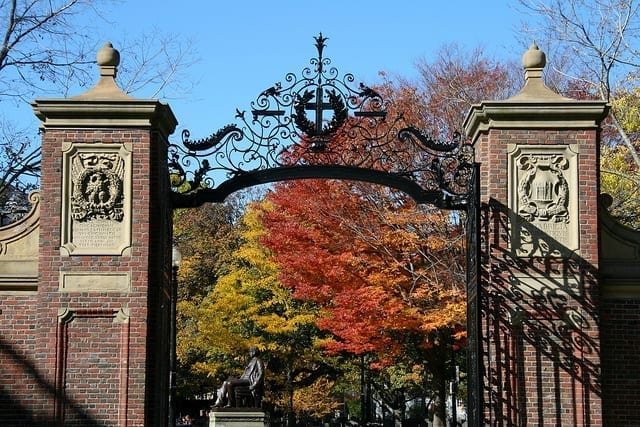Two Brown University basketball players allege that the Ivy League’s general policy of prohibiting athletics scholarship is an illegal form of price-fixing.
Brown University basketball players have filed a federal lawsuit alleging that the Ivy League’s pan-university policy of not offering athletic scholarships constitutes an unfair and potentially illegal price-fixing agreement that denies college-aged sportspeople compensation for their services.
According to The Associated Press, the lawsuit was earlier this week in U.S. District Court in Connecticut.
The lawsuit, notes The A.P., was filed on behalf of women’s basketball player Grace Kirk and men’s basketball alumnus Tamenang Choh.
Together, the two athletes are seeking a class action certification that could represent all current and former athletes at the eight Ivy League schools.
In their complaint, Kirk and Choh claim that Ivy League universities have—in effect—conspired to limit financial aid.
At most other universities, high-performing student-athletes receive tuition creditors, stipends, and other financial assistance to subsidize the costs of their college education and sports-related expenses.
“In either case, regardless of whether considered as a restraint on the price of education, the value of financial aid, the price of athletic services, or the level of compensation to Ivy League athletes, the Ivy League Agreement is per se illegal,” the lawsuit alleges.
The Associated Press notes that all eight Ivy League universities—Harvard, Yale, Brown, Princeton, Dartmouth, Cornell, Columbia, and Penn—do not offer scholarships of any kind, including athletic scholarships.

The policy, adds The Associated Press, dates back to at least 1954, making the Ivies the only Division I athletic conference that prohibits its members schools from offering any form of athletic scholarship or athletics-related financial assistance.
Robin Harris, the League’s executive director, has since defended the policy, saying that prospective students and student-athletes have a variety of opportunities to obtain funding.
“The Ivy League athletics model is built upon the foundational principle that student-athletes should be representative of the wider student body, including the opportunity to receive need-based financial aid,” Harris said in a statement. “In turn, choosing and embracing that principle then provides each Ivy League student-athlete a journey that balances a world-class academic experience with the opportunity to compete in Division I athletics and ultimately paves a path for lifelong success.”
Nevertheless, attorneys for Kirk and Choh have been keen to point out that other elite academic institutions—including Stanford and Duke—do provide athletics-related scholarships.
“These schools are not part of the Ivy League, but they demonstrate they can maintain stellar academic standards while competing for excellent athletes, and without agreed upon limits for the price,” the lawsuit states.
“The natural, foreseeable, and intended result of the Ivy League Agreement is that Ivy League athletes have paid more for their education and earned less in compensation or reimbursement than they would have in the absence of the agreement,” the complaint alleges.
Sources
Athletes sue Ivy League over its no-scholarship policy
Lawsuit challenges Ivy refusal to offer athletic scholarships


Join the conversation!